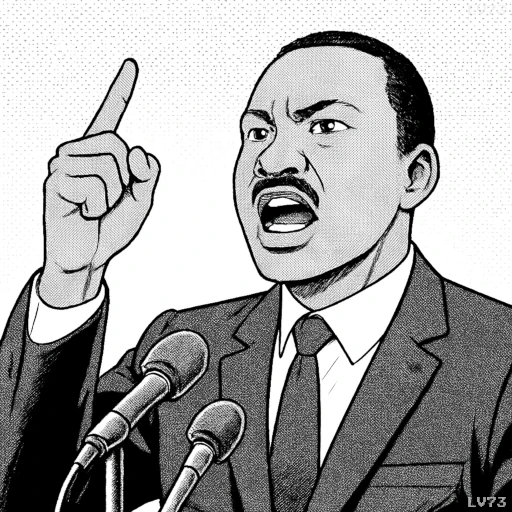“History will have to record that the greatest tragedy of this period of social transition was not the strident clamor of the bad people, but the appalling silence of the good people.”

- January 15, 1929 – April 4, 1968
- African American
- Pastor and civil rights leader
table of contents
Quote
“History will have to record that the greatest tragedy of this period of social transition was not the strident clamor of the bad people, but the appalling silence of the good people.”
Explanation
In this quote, King emphasizes that the true tragedy in times of social change is not the vocal actions of those who perpetuate injustice but the silence and inaction of those who know better. He suggests that when good people remain silent, they enable injustices to continue unchallenged. King’s words highlight the responsibility of those with moral awareness to speak up and act against wrongs, as silence can be as damaging as active wrongdoing.
King’s insight reflects his experiences during the Civil Rights Movement, where he often encountered individuals who believed in equality but hesitated to show support publicly. He understood that social change requires the courage of those with ethical convictions to take action, using their voices and influence to support justice. For King, silence in the face of oppression was a form of complicity, as it allowed injustices to persist unopposed.
Today, King’s message is a reminder of the importance of allyship, advocacy, and speaking out against injustice. His words call on each of us to use our voices and actions to support those facing discrimination, exploitation, or harm, understanding that silence can be a form of passive endorsement of injustice. King’s quote inspires us to be active participants in the fight for a just and equitable world, challenging us to choose courage over comfort and to remember that history often judges societies not only by what was done but by what was left unopposed.
Would you like to share your impressions or related stories about this quote in the comments section?



